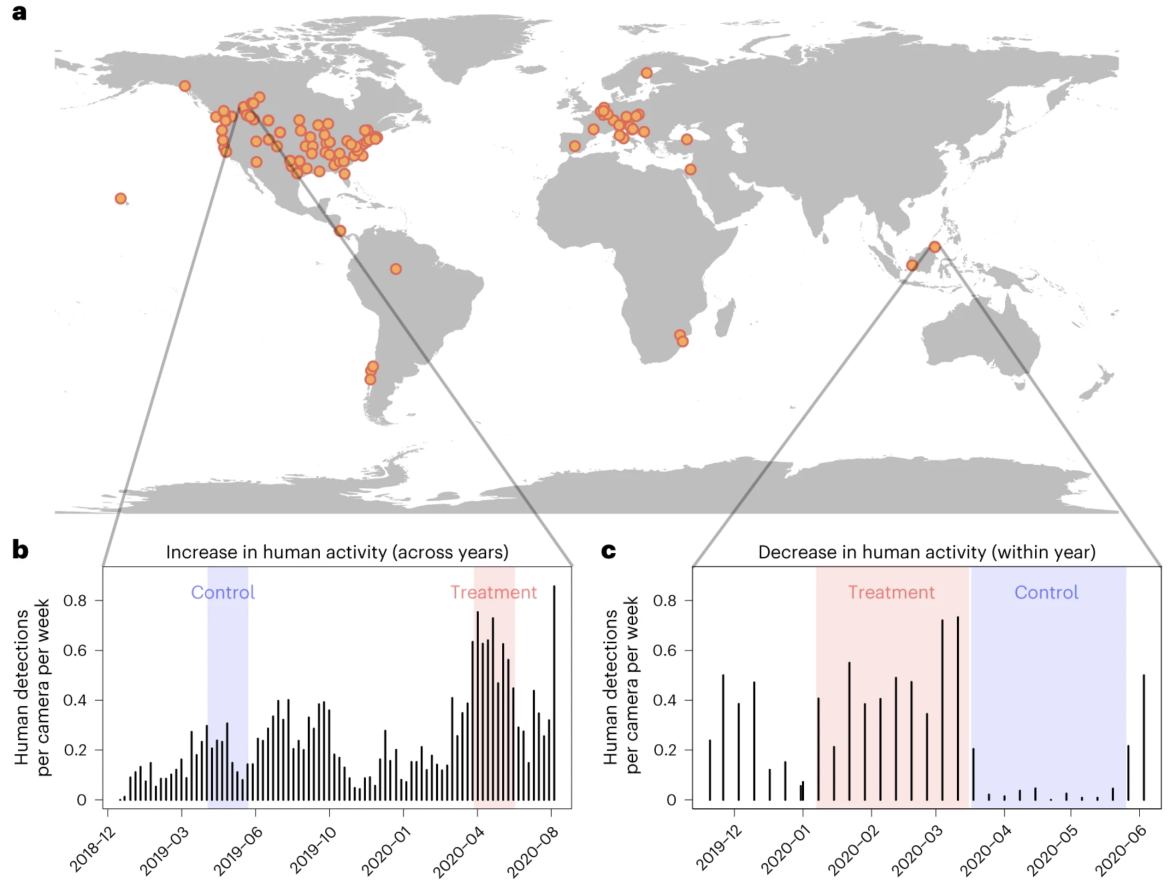
Figure 1. a, Location of camera-trap projects included in the analysis (n = 102). b,c, Examples for two projects: Edmonton, Canada (b) and Danum Valley, Malaysia (c) showing time series of human detections for the two types of comparisons used to assess the effects of higher human activity on animals. b, A between-year comparison with increased human activity during the COVID-19 pandemic (treatment, red shading) relative to the same time period the year before (control, blue shading). c, A within-year comparison with decreased human activity during the pandemic (control, blue shading) relative to the prepandemic period (treatment, red shading).
________________________
Press
March 18, 2024 - UBCScience: Global wildlife study during COVID-19 shows rural animals are more sensitive to human activity
________________________
Burton, A.C., Beirne, C., Gaynor, K.M. et al. 2024. Mammal responses to global changes in human activity vary by trophic group and landscape. Nature Ecology & Evolution.
Abstract
Wildlife must adapt to human presence to survive in the Anthropocene, so it is critical to understand species responses to humans in different contexts. We used camera trapping as a lens to view mammal responses to changes in human activity during the COVID-19 pandemic. Across 163 species sampled in 102 projects around the world, changes in the amount and timing of animal activity varied widely. Under higher human activity, mammals were less active in undeveloped areas but unexpectedly more active in developed areas while exhibiting greater nocturnality. Carnivores were most sensitive, showing the strongest decreases in activity and greatest increases in nocturnality. Wildlife managers must consider how habituation and uneven sensitivity across species may cause fundamental differences in human–wildlife interactions along gradients of human influence.